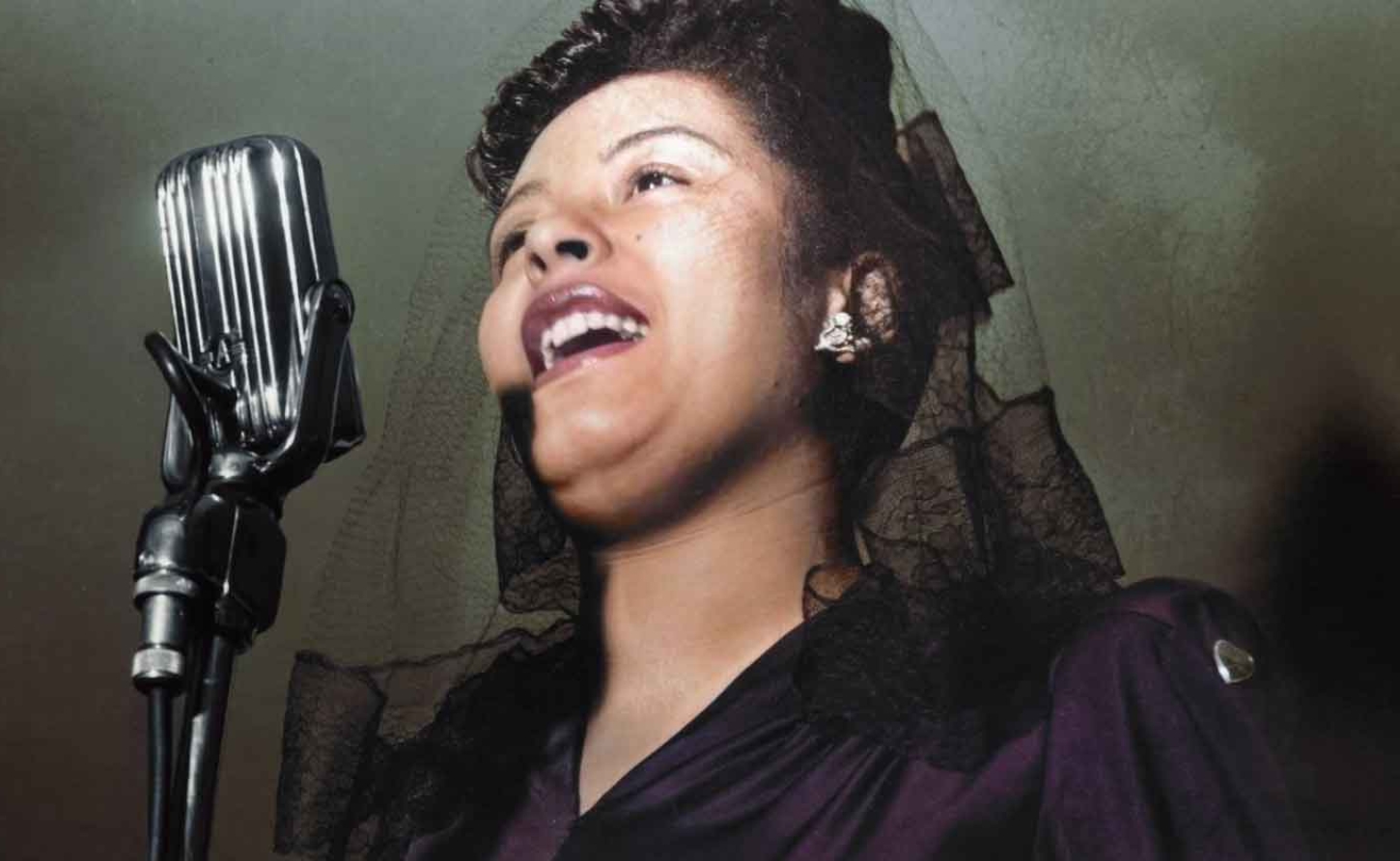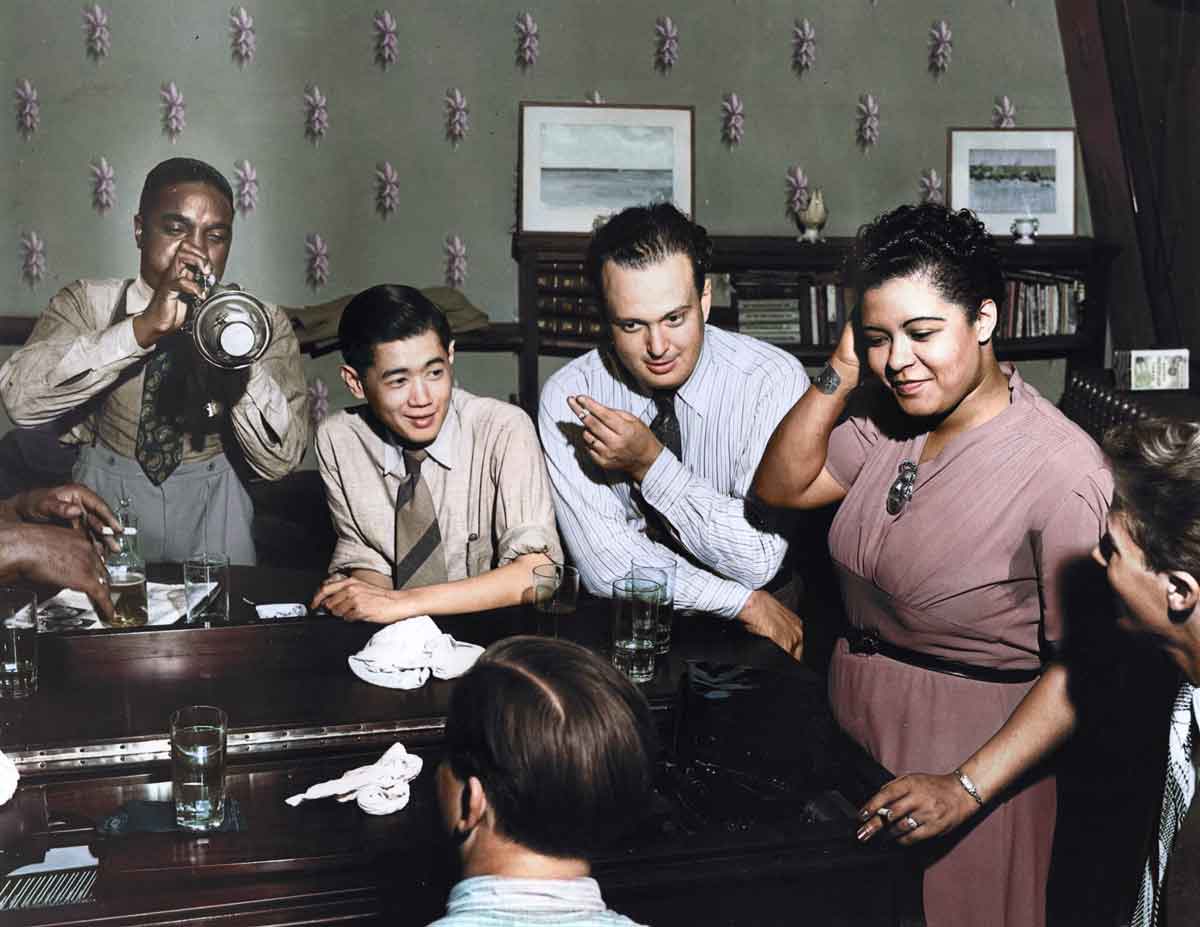HISTORY & CULTURE - How America Hunted Billie Holiday for Telling the Truth: "Strange Fruit"

The melody hung in the air like the bodies it mourned. When Billie Holiday first sang "Strange Fruit" at Café Society in 1939, white patrons filed out "one party after another," fleeing from the mirror she held up to their complicity.
The FBI took notice. For the next twenty years, until they finally got their wish and she died handcuffed to a hospital bed, the United States government waged war on a Black woman whose crime was refusing to let America forget the black bodies that swung from Southern trees.
This is the playbook: When Black truth becomes too loud, too undeniable, too threatening to the fairy tale of American innocence, crush it. From Billie Holiday to Critical Race Theory, from Strange Fruit to the 1619 Project, the pattern remains sickeningly consistent.
Donald Trump's crusade against Black history education isn't innovation—it's tradition, as American as the apple pie and the strange fruit hanging from the poplar trees.
The Ballad That Became a Battle Cry
Abel Meeropol's lyrics were journalism set to jazz: "Black bodies swinging in the southern breeze / Strange fruit hanging from the poplar trees." No metaphor. No cushioning. Just the raw, rotting truth of American lynching served up to supper club audiences who came for entertainment and got an education in their own barbarity.
Holiday didn't just sing it—she weaponized it. She wrote it into every contract: she would perform "Strange Fruit" at every concert, in every venue, to every audience. Imagine the audacity.
A Black woman in Jim Crow America, standing before white audiences who wouldn't let her use the same toilet, forcing them to confront the strange fruit their silence cultivated.
The FBI's response was swift and vicious. In newly uncovered testimonies from James Erskine's documentary Billie, the scope of their persecution becomes clear: They didn't just want to silence her—they wanted to destroy her as "an example to others."
Colonel George White, one of the agents who pursued her, admitted that her "fancy coats and fancy automobiles and her jewellery and her diamonds" generated resentment. Translation: How dare this Black woman refuse to perform gratitude for whatever scraps she was thrown?
 Coy revolutionary … Holiday and collaborators, 1939. Photograph: New Black FilmsThe Machinery of Destruction
Coy revolutionary … Holiday and collaborators, 1939. Photograph: New Black FilmsThe Machinery of Destruction

In May 1947, after Holiday was explicitly ordered not to sing "Strange Fruit" at a Philadelphia concert and did it anyway, federal agents raided her hotel room. As she fled, they opened fire on her car. Let that sink in: The United States government shot at a woman for singing about lynching.
They arrested her on drug charges—the convenient cover story for political persecution that wouldn't die with her. They ensured she served a year in prison. They banned her from any venue that served alcohol, effectively ending her ability to make a living in jazz clubs.
They hounded her from city to city, state to state, until she collapsed. Even as she lay dying from cirrhosis in 1959, they arrested her in her hospital bed, handcuffing her to the rail as if a 44-year-old woman ravaged by a lifetime of abuse might suddenly sprout wings and escape the justice they'd been denying her all along.
FBI files from 1949 state it plainly: Holiday had been "discredited" as a warning. Not prosecuted for crimes. Not investigated for wrongdoing. Discredited. Destroyed. Erased.
The Erasure Playbook
This is what they do to Black truth-tellers, and they're still doing it. When Donald Trump railed against the 1619 Project, when he established his "1776 Commission" to promote "patriotic education," when he banned federal diversity training that addressed systemic racism—he was following the same playbook that destroyed Billie Holiday.
The message remains unchanged: Shut up about the strange fruit. Pretend the trees were always empty. Teach the children that America was born perfect and holy.
The pattern is as old as emancipation itself. After Reconstruction, they erected Confederate monuments to rewrite the Civil War as noble tragedy. They transformed the Ku Klux Klan from terrorists into "defenders of Southern honor."
They buried the Tulsa Massacre, erased Rosewood, silenced the survivors of Red Summer. Each generation of white leadership finds new ways to perform the same old magic trick: making Black suffering disappear.
Trump's "patriotic education" follows this bloodstained blueprint precisely. Ban the books that mention racism. Fire the teachers who discuss privilege. Defund the programs that acknowledge difference.
It's not about protecting children from "divisive concepts"—it's about protecting white comfort from Black reality. The same comfort that made those Café Society patrons flee when Holiday sang. The same comfort that treats Black history as attack, Black memory as threat, Black truth as terrorism.
But here's what the erasers never understand: You can't kill the truth by killing the messenger. Holiday sang "Strange Fruit" for twenty years, and though they destroyed her body, the song survived.
It echoed through Nina Simone's "Mississippi Goddam," through Public Enemy's "Fight the Power," through every Black Lives Matter protest where another strange fruit—George Floyd, Breonna Taylor, Ahmaud Arbery—forced America to look again at what hangs from its history.
The Reckoning
Jo Jones, the drummer who played with Holiday, told her biographer: "How did she take it? Fuck it! She'd go in and sing! Go and fuck 'em! She did what she did until she died."
That's the lesson they don't want taught in schools. That resistance is possible. That a Black woman with a microphone can be more dangerous than an army. That truth, once sung, cannot be unsung.
They killed Billie Holiday for singing about strange fruit. But the trees remember. The songs remember. We remember. And as long as there are voices willing to sing uncomfortable truths, their war on memory will fail.
Because slavery is indeed a bitch. And so is the truth about it.
-30-
